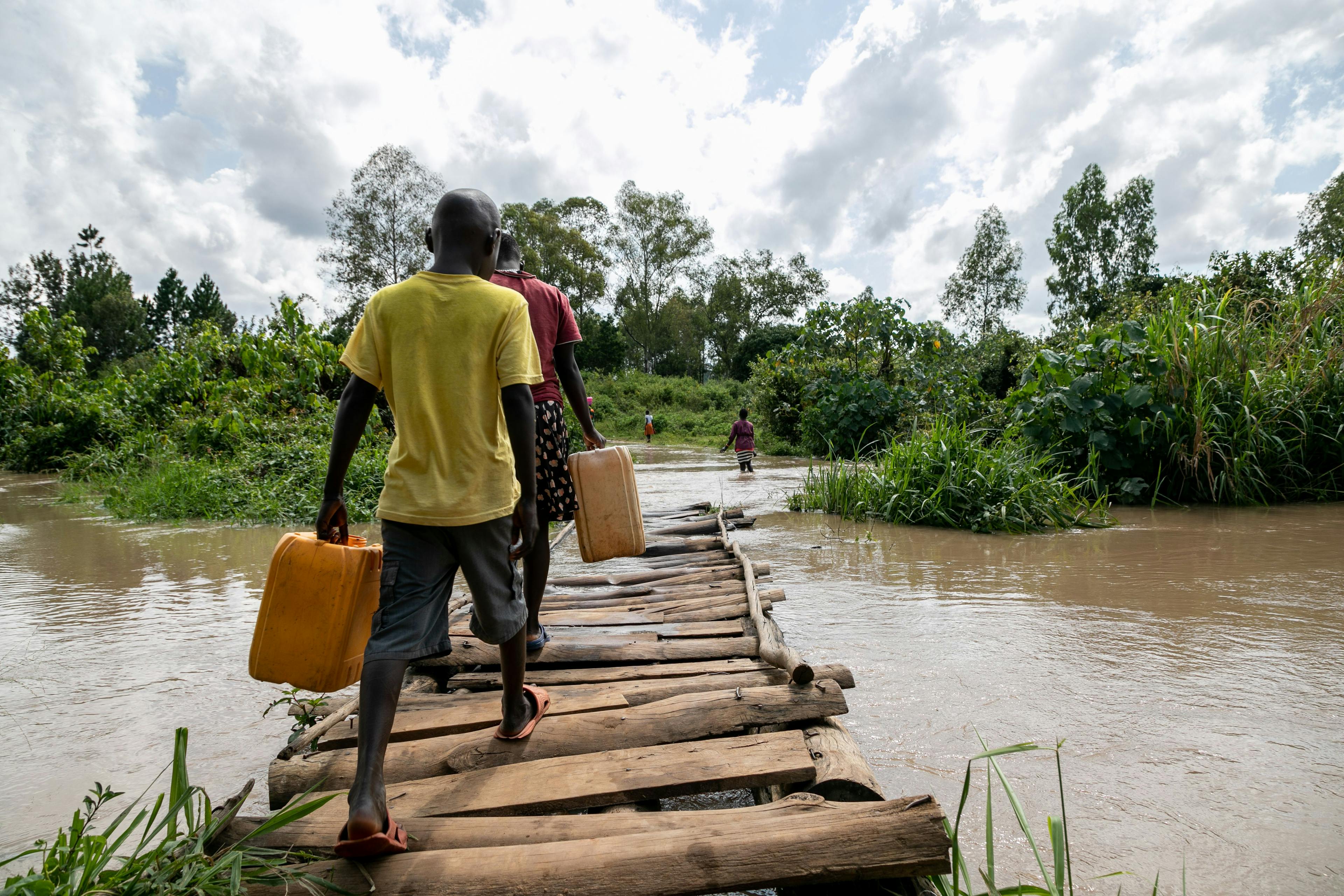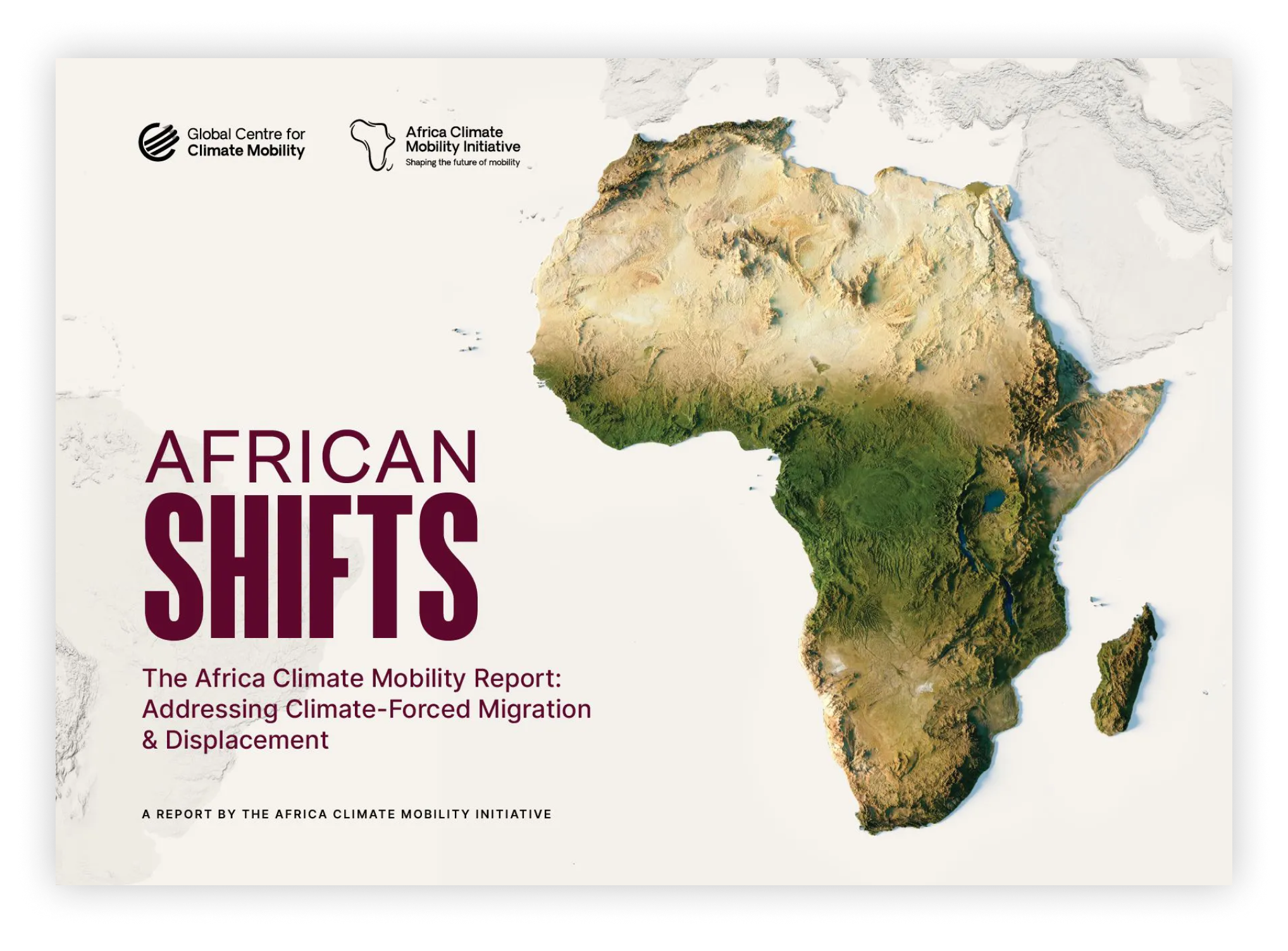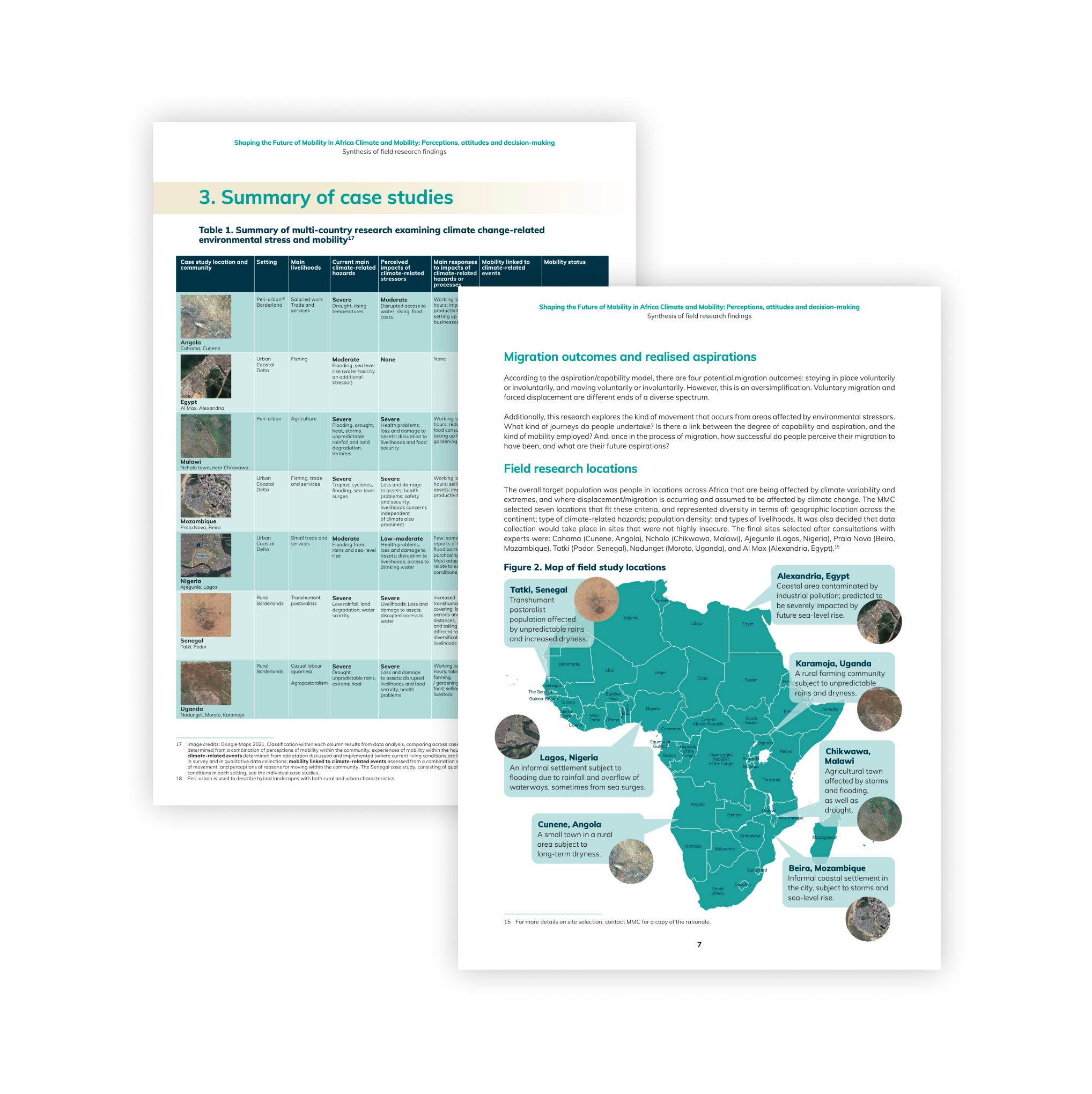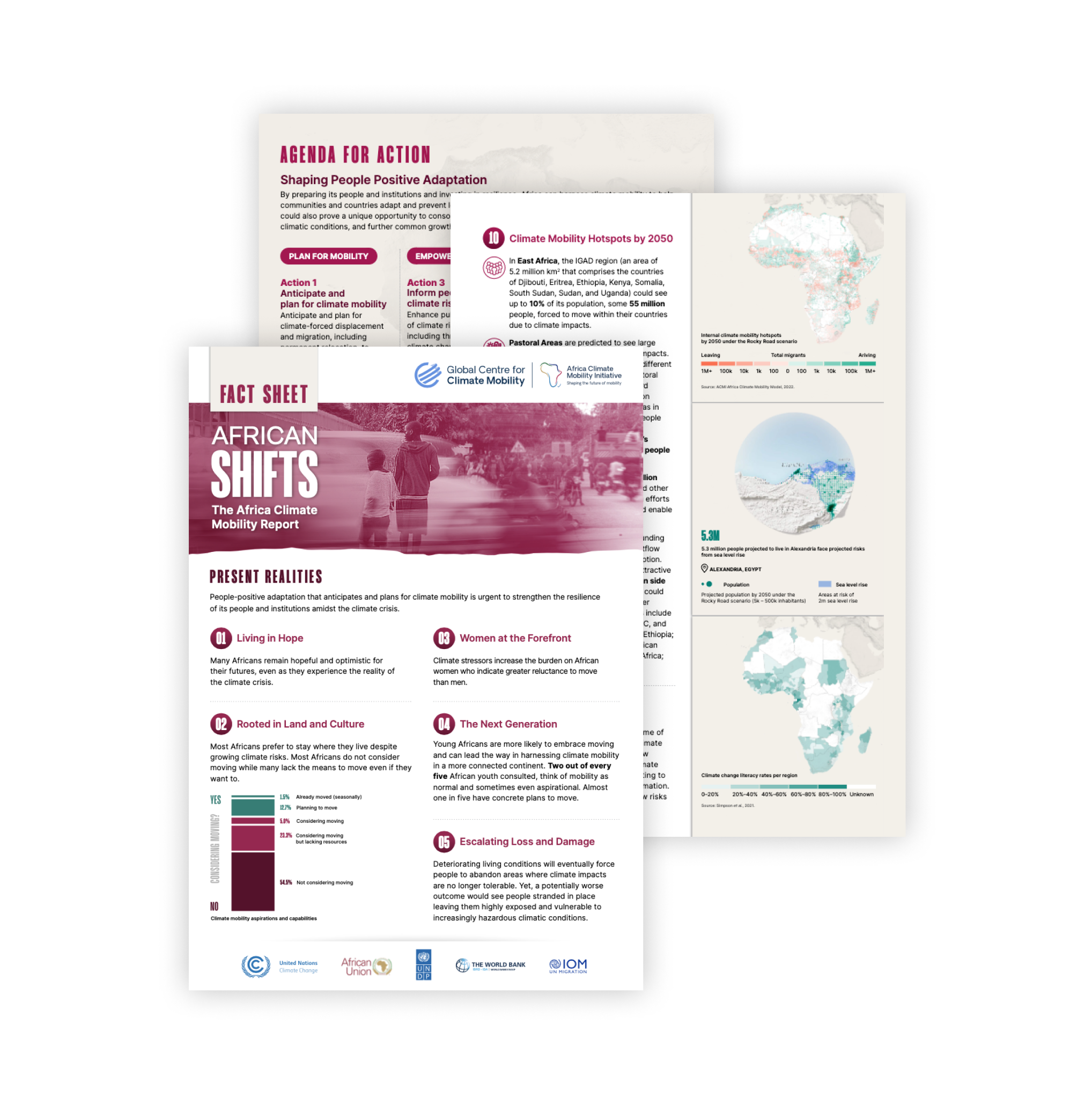Voices from thefrontlines
Climate change is reshaping our world and exposing Africans, across the continent, to increased hardship. How can its people be empowered to face climate shocks and stressors and make informed decisions to move or stay now and in the future?

Africa Climate Mobility InitiativeAbout
Africa Climate Mobility InitiativeAbout
Learn more about the work and goals of the Africa Climate Mobility Initiative.
Vision
People positive climate action that anticipates and plans for climate mobility empowers people and communities to build resilient adaptation journeys, preventing future loss and damage.
About the Africa Climate Mobility Initiative
The Africa Climate Mobility Initiative is a people-centred and evidence-based Initiative, aiming to generate political momentum around a common policy agenda and to mobilise resources for the implementation of comprehensive and locally anchored solutions to address climate mobility.
The Africa Climate Mobility Initiative’s cornerstones are knowledge-building, connecting and empowering change agents and accelerating policy and project implementation underpinned by strategic partnerships.
The Africa Climate Mobility Initiative is a joint undertaking of the African Union Commission, the World Bank, the United Nations Development Programme, the International Organization for Migration, and the UN Framework Convention on Climate Change. The Initiative’s efforts are coordinated by the Global Centre for Climate Mobility.
About the Global Centre for Climate Mobility
Climate change is already reshaping our world. We have opportunities to build resilience if we prioritise adaptation strategies that put people first.
With this understanding, the Global Centre for Climate Mobility was formed to advance evidence-based, regional approaches to planning for climate forced migration and displacement.
The goals of the Global Centre for Climate Mobility are to generate political momentum, build consensus around a common agenda for action, and unlock resources for advancing comprehensive, locally anchored adaptation and climate-resilient development strategies that are both people positive and nature positive.
About the research
The ACMI findings and recommendations for action build upon two research inputs.
In collaboration with the Mixed Migration Centre, the ACMI collected data among frontline communities in seven locations on the African continent that are already affected by severe climate impacts. Through surveys, interviews and focus group discussions the research explored how climate stressors are perceived and influence people’s aspirations, capabilities, and decisions to move.
Together with Columbia University and researchers from the Potsdam Institute for Climate Impact Research (PIK) and the City University of New York, the ACMI built a novel Africa Climate Mobility model to project future climate mobility scenarios for the continent out to 2050. The model forecasts the direct and indirect effects of climate impacts on the population distribution in the continent, including areas of prospective in and out movement.
The Africa Climate Mobility model builds upon similar forecasting undertaken for the World Bank’s Groundswell reports, but updates and expands inputs to the model, considering factors such as sea level rise, flooding, water availability, crop yields, range land productivity, and violence.
Download the African Shifts Report to better understand the impacts of the climate crisis on human mobility in Africa.

A set of 7 case studies & field research are at the heart of the Africa Climate Mobility Initiative's research and report.

Download the summary of key messages, figures and projections from the research behind this platform.
